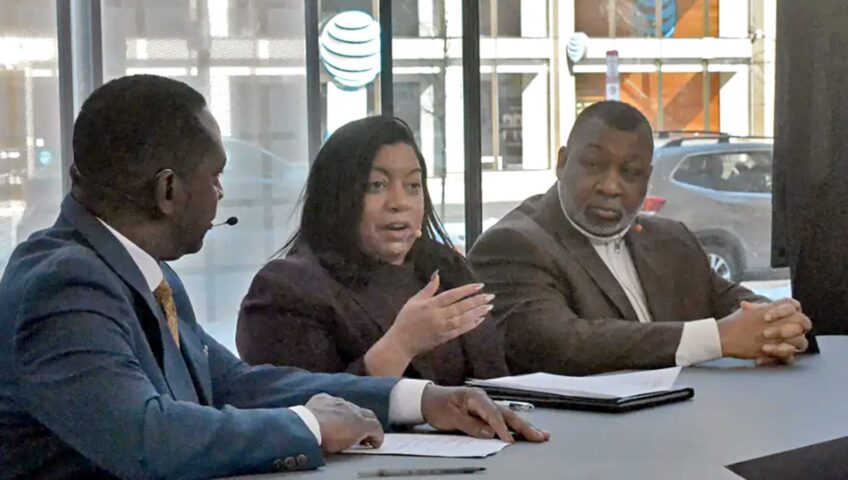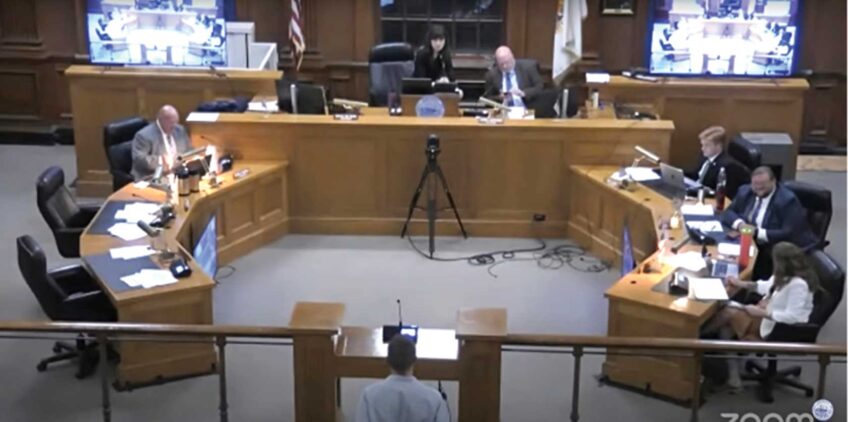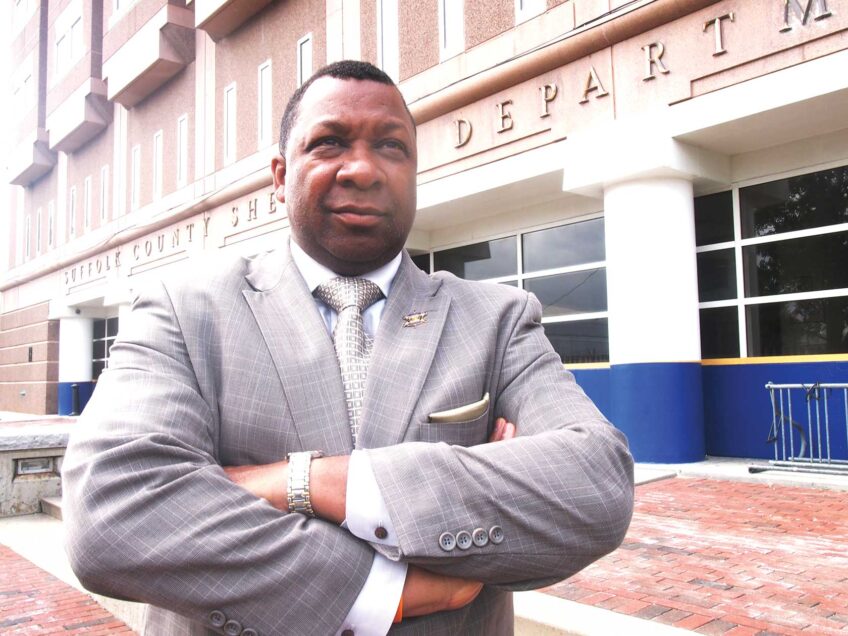New state law makes prison phone calls free
Aim is to ease cost burden, better connect inmates and families

Starting this month, phone calls in and out of Massachusetts jails and prisons are free, under a new state law.
The law, which went into effect Dec. 1, makes Massachusetts the fifth state in the country to eliminate fees for calls to and from incarcerated people.
“It’s important for the person incarcerated, but it’s important for their family,” said Sen. Cynthia Stone Creem, who was lead sponsor of the bill in the Senate. “It’s important for the children, for their partners, their spouses, to maintain a connection and to later have the support they need to transition back to the community.”
Supporters of the bill say that increased contact with family members can help support inmates when they’re released.
“There’s a lot of research that shows that communication with family helps incarcerated people and their children and other loved ones and even their communities, because we know that regular communication and community support help people stay out of prison once they stay home,” said Traci Griffith, racial justice program director at the ACLU of Massachusetts.

Rep. Chynah Tyler visits the Suffolk House of
Corrections in 2019. Tyler was the lead sponsor in the House of recently-enacted legislation that makes all phone calls to and from inmates in Massachusetts free. PHOTO: COURTESY OF THE OFFICE OF REP. TYLER
A 2014 study published in the Prison Journal found that women in prison with more family contact were less likely to be reincarcerated.
Contact efforts will be supported by a program to provide inmates with access to touch-screen tablets, said Rep. Chynah Tyler in a written statement. Tyler was lead sponsor of the legislation in the House.
According to Securus Technologies, the company that facilitates phone calls with Massachusetts inmates, the tablets are not currently equipped to make or receive calls, but will allow for direct calling to and from the tablets beginning next year.
Griffith said the new law addresses racial justice issues. Black residents made up 6.5% of the state population, but 17.1% of the criminal caseload, according to a 2020 report from the Criminal Justice Policy Program at Harvard Law School.
She said many people who are incarcerated come from lower-income communities, which make calls challenging for many inmates and their families, at a rate of 12 cents per minute through the Department of Correction or 14 cents per minute from county sheriff’s departments.
“It can be difficult for folks who are of lesser means to maintain those relationships, because they can’t afford to maintain those relationships,” Griffith said.
In 2015, the Ella Baker Center for Human Rights reported that more than one-third of families nationwide went into debt to pay for prison phone calls and visits.
Research has also shown that staying in touch with inmates over the phone is more common than other means of contact.
According to a 2020 survey of incarcerated parents, children were more than 1.5 times as likely to contact their parents by phone weekly than to send mail, and almost 2.5 times as likely to call than to visit every week.
“Children need and continue to need connection to their parents, and historically it’s affected the money that they may have for child support by paying exorbitant costs to keep connection,” Creem said.
In previous attempts at passing similar bills, legislators faced opposition from the Massachusetts Sheriffs’ Association, which raised concerns that the revenue loss would not be fully covered.
Creem said there was less opposition from sheriffs this time around, though still some, but she and other legislators worked to understand the concerns and added $20 million in funding to balance out the losses from call fees.
“It was hard to really find or determine what the sheriffs actually were paying for this, because all the information wasn’t clear and because it’s not the same from county to county,” Creem said. “But we took a certain amount of money, put it into the budget, which we assume will cover what reasonably should be the cost if there are out-of-pocket costs to the sheriffs,” Creem said.
Griffith said the fund in the budget, which will be facilitated by the Executive Office of Administration and Finance, should cover the concerns voiced by sheriffs.
“We should not have any problem in instituting it moving forward,” she said.
Tyler, in a statement, said the Legislature is willing to support sheriffs and administrators “with any effort to properly rehabilitate and care for those who happen to be incarcerated.”
The Sheriffs’ Association could not be reached for comment.
The signing of the law comes as efforts at the federal level are underway to cap the cost of phone calls in and out of prisons across the country. In January, the Federal Communications Commission established rules between June and December 2024.
The caps would regulate widely varying fees for calls to incarcerated people. According to the Prison Policy Initiative, as of 2021, rates for in-state calls ranged from 6 cents to 36 cents per minute, making a 15-minute call in states with the highest rates six times more expensive than in those with the lowest.






